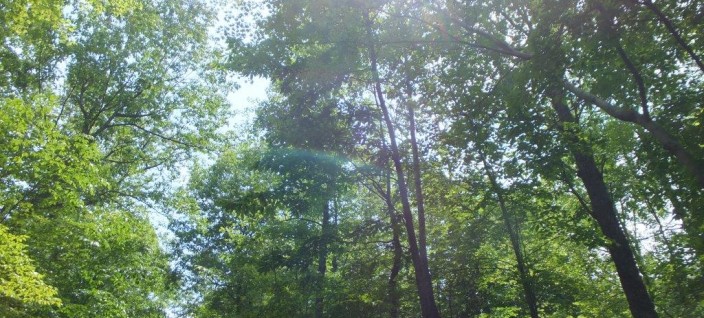 Finding large, wild, surviving American chestnuts is always exciting, but to find a healthy one below the fall line in Virginia is both exciting and special. But there it is, right next to a trail in Prince William Forest Park.
Finding large, wild, surviving American chestnuts is always exciting, but to find a healthy one below the fall line in Virginia is both exciting and special. But there it is, right next to a trail in Prince William Forest Park.
Prince William Forest Park preserves approximately 15,000 acres of piedmont forest covering a major portion of the Quantico Creek watershed. The park is the third largest unit of the National Park System in Virginia. It is located at the convergence of the northernmost range of many southern species and the southernmost range of many northern species; and at the convergence of the coastal plain and piedmont geologic zones, yielding a huge diversity of plant and animal life in the shadow of the D.C. metropolitan area. It was once loaded with chestnut trees, but until this discovery, no one knew whether any still survived.
VATACF has applied for a research permit to release this tree. If we are successful, the tree might produce pollen next year or the year after, and if we can keep it healthy, might produce burs the year following. Then the tree can be bred to a blight-resistant hybrid to begin a line of blight-resistant American chestnuts suitable for reforesting the forests in the Quantico Creek watershed.
Nickname: the Petersen Tree
Height: 75 feet
Diameter at breast height: 18.8 cm
Location: Taylor Farm Road

